1999 Los observadores internacionales descubren 45 cadáveres
de civiles kosovares de etnia albanesa en distintos lugares al sur de Kosovo.
1998 El Tribunal Constitucional turco decide disolver el
Partido del Bienestar y condenar a su líder y primer ministro Necmettin
Erbakan, a cinco años de inhabilitación política.
1998
El presidente estadounidense Bill Clinton, suspende el artículo III de la
ley Helms-Burton contra Cuba.
1997 El gobierno argentino
rechaza la petición del juez español Baltasar Garzón para abrir una investigación
sobre la desaparición de 266 ciudadanos de origen español durante el régimen
militar argentino.
1997 El etarra José Luis Urrusolo
Sistiaga, relacionado con 18 asesinatos y dos secuestros, es detenido por
gendarmes franceses cerca de Burdeos.
1996 Gunmen
in Trabzon, Turkey, hijack a Black Sea ferry with more than 200 people on
board, and demand that Russian troops stop fighting Chechen patriots in
Pervomayskaya. (The hostages would be released three days later)
1994
El presidente italiano, Oscar Luigi Scalfaro, disuelve el Parlamento y convoca
elecciones generales anticipadas.
1992 Officials
of the government of El Salvador and rebel leaders sign a pact in Mexico
City ending 12 years of civil war. — Se firma la paz entre la FMLN
y el gobierno de El Salvador en el castillo de Chapultepec.
1991 Announcing the start of Operation Desert
Storm by US and 27 allies, to drive Iraqi forces out of Kuwait, President
Bush said in a nationally broadcast address, "the battle has been joined,"
as fighter bombers pounded Iraqi targets. (Because of the time difference,
it is early 17 January in the Persian Gulf when the attack begins.)
^
1990 Soviets send troops into Azerbaijan
In the wake of vicious fighting
between Armenian and Azerbaijani forces in Azerbaijan, the Soviet
government sends in 11'000 troops to quell the conflict. The fighting
— and the official Soviet reaction to it — was an indication
of the increasing ineffectiveness of the central Soviet government
in maintaining control in the Soviet republics, and of Soviet leader
Mikhail Gorbachev's weakening political power.
Strife in Azerbaijan was the result of centuries of tensions between
the Islamic Azerbaijanis and the Christian Armenians. Since the Russian
Revolution in 1917, the communist regime managed to maintain relative
peace between the two groups, but with the gradual weakening of the
Soviet Union during the late-1980s, ethnic rivalries began to re-emerge.
In its weakened state, the Soviet Union chose to only partially involve
itself in the conflict. The approach was unusual — had it occurred
under the strict communist regime of the Cold War's peak, such a tense
internal conflict would likely have been immediately and forcefully
quelled.
In the latest outbreak
of violence, Armenians took the brunt of the attacks and nearly 60
people were killed. Armenian spokesmen condemned the lack of action
on the part of the Gorbachev regime and pleaded for military intervention.
Soviet officials, however, were not eager to leap into the ethnic
fray and attempted to downplay the seriousness of the situation in
the press. One Soviet official declared that the fighting in Azerbaijan
was not a "civil war," but merely "national strife."
Some Gorbachev supporters even voiced the suspicion that the violence
in the region was being stirred up by anti-Gorbachev activists merely
to discredit the regime. Gorbachev dispatched 11'000 Soviet soldiers
to quiet the situation, and the United States government supported
his action as a humanitarian response to the killings and terror.
The troops Gorbachev sent did
little to alleviate the situation — over the next two years,
ethnic violence in Azerbaijan continued, and the weakening Soviet
regime was unable to bring a lasting resolution to the situation.
Less than two years later, Gorbachev resigned from power and the Soviet
Union ceased to exist. |
1989 Police arrest writer Vaclav Havel in Prague.
1989 El Consejo de Seguridad de la ONU aprueba por unanimidad
el plan para la independencia de Namibia y pide al Gobierno de Sudáfrica
que reduzca su presencia militar en ese territorio.
1987
Dimite Hu Yaobang, secretario del Partido Comunista chino, y le sustituye
Zao Ziyang.
1985 El Gobierno israelí decide retirar
sus tropas del Líbano en tres fases.
1982 Great
Britain and the Vatican resume full diplomatic relations after a break of
over 400 years.
1981 In Northern Ireland, Protestant
gunmen shoot and wound Irish nationalist leader Bernadette Devlin McAliskey
and her husband.
^
1979 Shah flees from Iran.
Faced with an army mutiny and violent demonstrations against his rule,
Mohammad Reza Shah Pahlavi, the leader of Iran since 1941, is forced
to flee the country for Egypt. Fourteen days later, the Ayatollah
Ruhollah Khomeini, the spiritual leader of the Islamic revolution,
returned after 15 years of exile and took control of Iran.
In August 1941, British and Soviet
troops occupied Iran, and the first Pahlavi shah (Reza Khan 16 Mar
1878 – 26 Jul 1944), whom they regarded with suspicion, was forced
to abdicate on 16 September 1941 in favor of his son, Mohammad Reza
Pahlavi (born on 26 October 1919). The new shah promised to act as
a constitutional monarch but often meddled in the elected government's
affairs. After a Communist plot against him was thwarted in 1949,
he took on even more powers. However, in the early 1950s, the shah
was eclipsed by Mohammad Mosaddeq, a zealous Iranian nationalist who
convinced the Parliament to nationalize Britain's extensive oil interests
in Iran. Mohammad Reza, who maintained close relations with Britain
and the United States, opposed the decision. Nevertheless, he was
forced in 1951 to appoint Mosaddeq premier, and two years of tension
followed.
In August 1953, Mohammad
Reza attempted to dismiss Mosaddeq, but the premier's popular support
was so great that the shah himself was forced out of Iran. A few days
later, British and US intelligence agents orchestrated a stunning
coup d'etat against Mosaddeq, and the shah returned to take power
as the sole leader of Iran. He repealed Mosaddeq's legislation and
became a close Cold War ally of the United States in the Middle East.
In 1963, the shah launched his "White
Revolution," a broad government program that included land reform,
infrastructure development, voting rights for women, and the reduction
of illiteracy. Although these programs were applauded by many in Iran,
Islamic leaders were critical of what they saw as the westernization
of Iran. Ruhollah Khomeini, a Shiite cleric, was particularly vocal
in his criticism and called for the overthrow of the shah and the
establishment of an Islamic state. In 1964, Khomeini was exiled and
settled across the border in Iraq, where he sent radio messages to
incite his supporters.
The shah
saw himself foremost as a Persian king and in 1971 held an extravagant
celebration of the 2500th anniversary of the pre-Islamic Persian monarchy.
In 1976, he formally replaced the Islamic calendar with a Persian
calendar. Religious discontent grew, and the shah became more repressive,
using his brutal secret police force to suppress opposition. This
alienated students and intellectuals in Iran, and support for Khomeini
grew. Discontent was also rampant in the poor and middle classes,
who felt that the economic developments of the White Revolution had
only benefited the ruling elite. In 1978, anti-shah demonstrations
broke out in Iran's major cities.
On 08 September 1978, the shah's security force fired on a large group
of demonstrators, killing hundreds and wounding thousands. Two months
later, thousands took to the streets of Tehran, rioting and destroying
symbols of westernization, such as banks and liquor stores. Khomeini
called for the shah's immediate overthrow, and on December 11 a group
of soldiers mutinied and attacked the shah's security officers. With
that, his regime collapsed and the shah fled.
The shah traveled to several countries before entering the United
States in October 1979 for medical treatment of his cancer. In Tehran,
Islamic militants responded on 04 November 1979 by storming the US
embassy and taking the staff hostage. With the approval of Khomeini,
the militants demanded the return of the shah to Iran to stand trial
for his crimes. The United States refused to negotiate, and 52 US
hostages were held for 444 days until the 20 January 1981 inauguration
of President Reagan. Mohammad Reza Shah Pahlavi died in in Egypt on
27 July 1980. |
1975 Se firma en Lisboa el acuerdo para la independencia
de Angola.
1970 Colonel Muammar al-Qaddafi becomes
premier of Libya.
1967 First black government installed
in Bahamas, as after the general elections of 1967, the Progressive Liberal
Party under the leadership of Lynden Pindling was able to form a government
with a slight majority.
1969 Soviet Soyuz 4 and
Soyuz 5 perform first transfer of crew in space.
^
1969 Agreement to open Vietnam peace talks.
An agreement is reached in Paris for
the opening of expanded peace talks. It was agreed that representatives
of the United States, South Vietnam, North Vietnam, and the National
Liberation Front would sit at a circular table without nameplates,
flags or markings.
The talks
had been plagued from the beginning by procedural questions, and the
participants literally jockeyed for desirable positions at the negotiating
table. Prolonged discussions over the shape of the negotiating table
were finally resolved by the placement of two square tables separated
by a round table. Seemingly insignificant matters as the table placement
and seating arrangement became fodder for many arguments between the
delegations at the negotiations. |
|
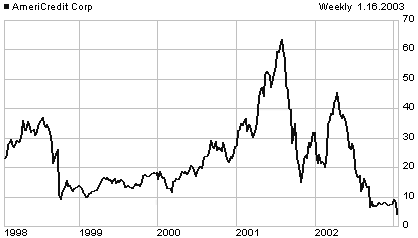 On
a January 16:
On
a January 16: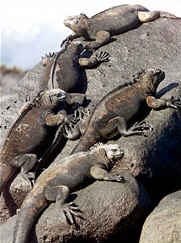

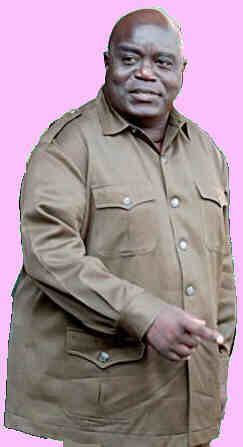
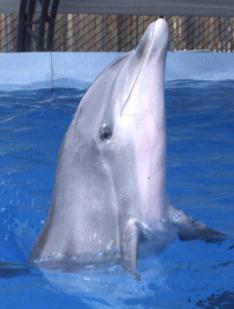
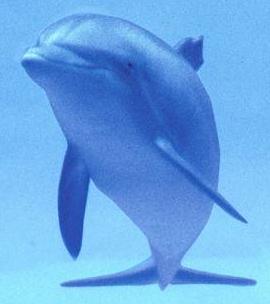
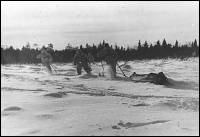
 1936
Albert Fish, 73, in the Sing Sing electric chair, saying "It will
be the supreme thrill, the only one I haven't tried.". The "Moon Maniac"
is believed to have killed and eaten 10 children, including in 1928 Grace
Budd, 12, of which he was found guilty. His other thrills included self-torture
and self-debasement, and boasting about it all.
1936
Albert Fish, 73, in the Sing Sing electric chair, saying "It will
be the supreme thrill, the only one I haven't tried.". The "Moon Maniac"
is believed to have killed and eaten 10 children, including in 1928 Grace
Budd, 12, of which he was found guilty. His other thrills included self-torture
and self-debasement, and boasting about it all. Births
Births